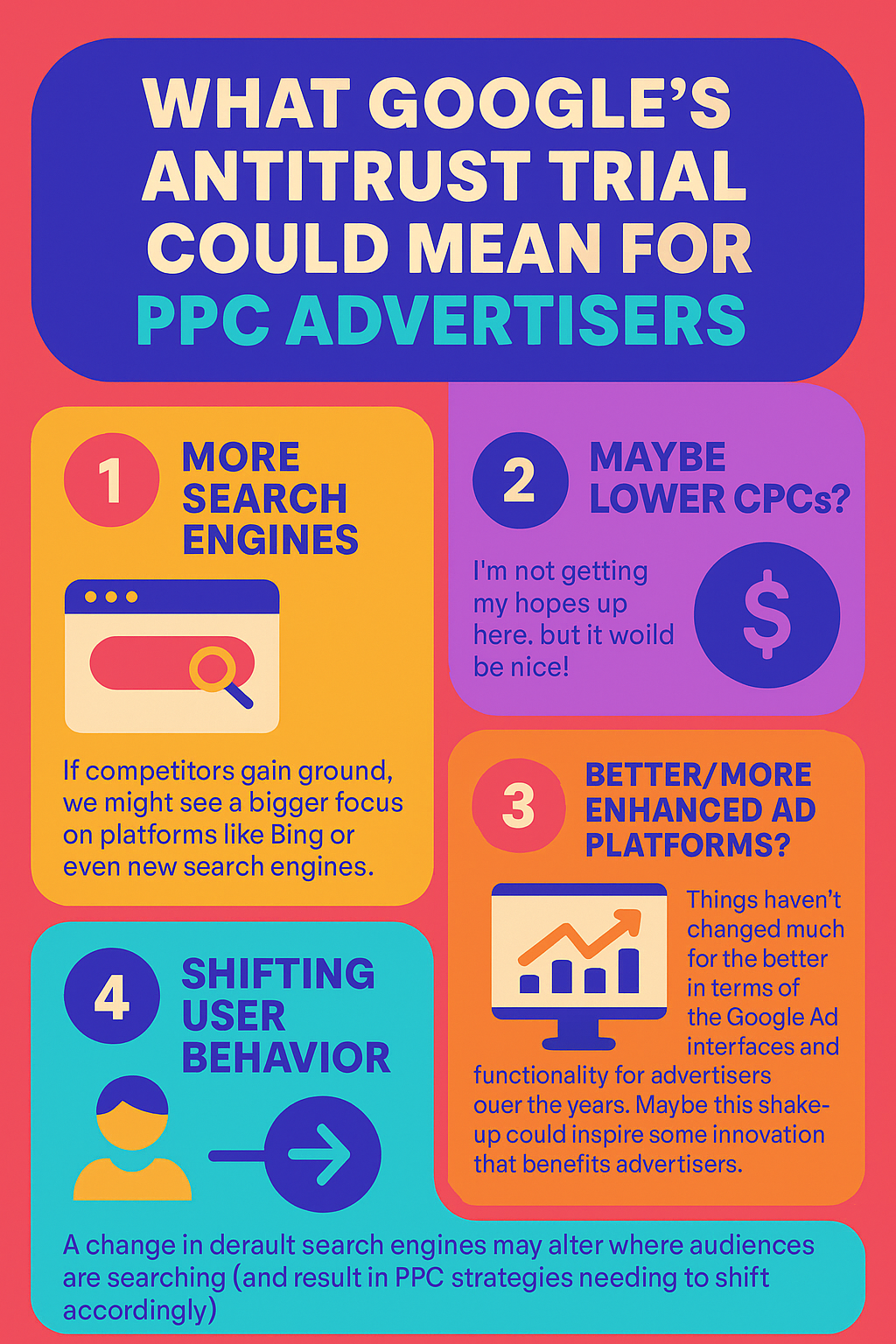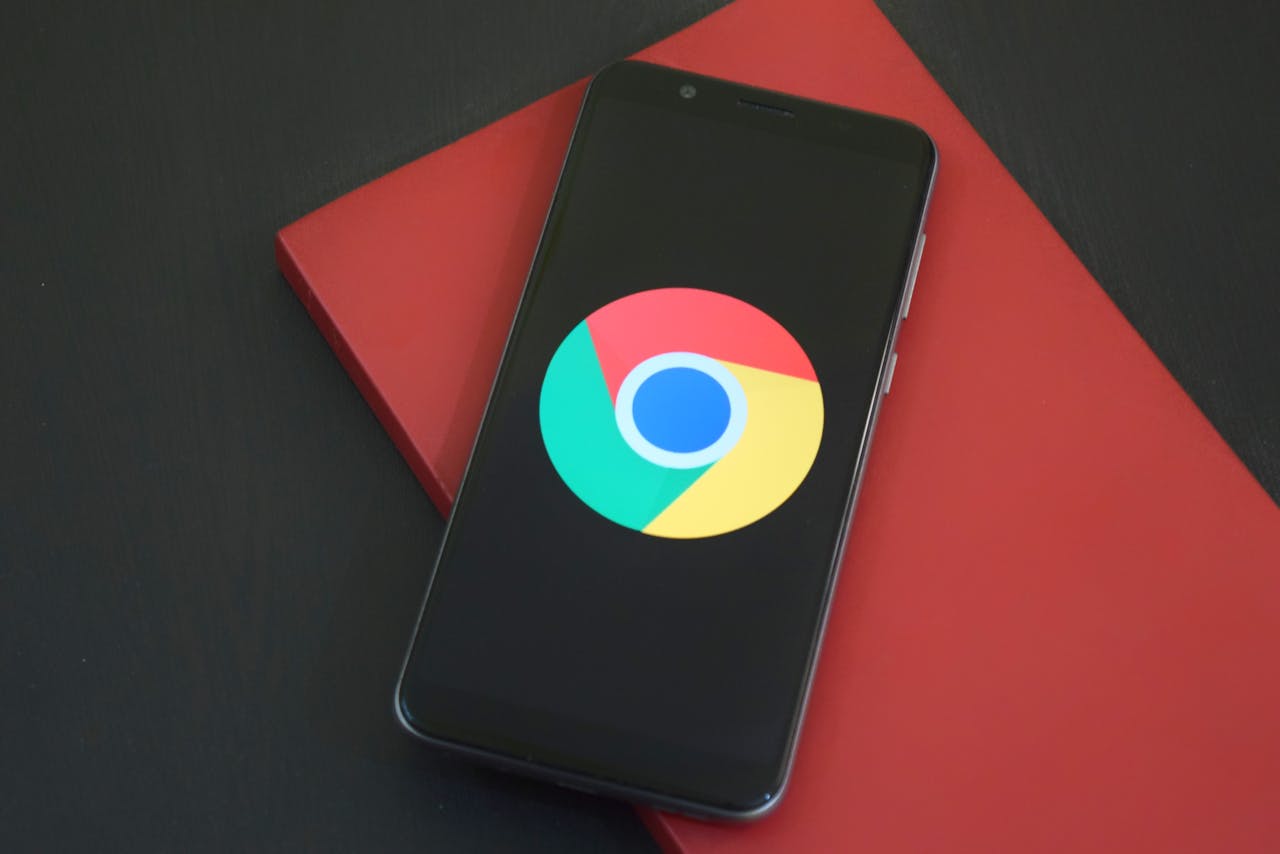If you’ve been keeping an eye on the tech world lately, you’ve likely heard the buzz around Meta and its ongoing antitrust battle. But while that drama unfolds, don’t let it distract you from another heavyweight bout: Google vs. the Department of Justice.
This isn’t Google’s first time in the legal spotlight. In fact, just last year, a judge ruled that Google holds monopoly power in the search engine space. Now, the two sides are back in court to determine what the consequences of that ruling should actually look like. And let’s just say—the stakes are high, especially if you’re in digital advertising.
So, what’s the DOJ asking for? Well, it’s not just a slap on the wrist. The Justice Department wants Google to divest from Chrome, stop making deals with phone manufacturers that set Google as the default search engine, and basically take a big step back from the powerful ecosystem it’s spent decades building.
Unsurprisingly, Google’s response can be summed up as: hard pass.
But for those of us running Google Ads or working in pay-per-click (PPC) advertising more broadly, this isn’t just a legal curiosity—it could reshape the landscape we work in every day. Whether this ends in a massive fine or something more disruptive, it’s worth paying attention to what’s coming down the pipeline.

What’s at Stake for Advertisers with Google’s Antitrust Trial?
At this stage, there’s no certainty around what will happen next. The court could impose serious changes, or it could settle on monetary penalties and let Google carry on as usual. But just for fun—and strategy—we’re taking a look at what could potentially happen if Google is forced to shift gears, and how that might shake up the PPC world.
Here are a few loose predictions (and let’s be real, some hopeful thinking) on how advertisers could be affected:
1️⃣ A Rise in Search Engine Alternatives
Let’s start with the obvious: if the court forces Google to loosen its grip, we could see real growth from other search engines. Bing (now powered more deeply by AI integrations through Microsoft’s partnership with OpenAI) could become more than just an afterthought in campaign planning. There’s also potential room for new players to enter the scene—smaller or privacy-focused engines like DuckDuckGo, Ecosia, or even AI-based search startups.
For advertisers, this could mean rethinking channel allocation, exploring ad opportunities in new ecosystems, and adjusting strategy to account for varying user behavior across platforms.
👉 What to watch: Keep an eye on developments with Microsoft Ads, and start brushing up on campaign management for non-Google platforms.
2️⃣ Maybe Lower CPCs (Don’t Hold Your Breath)
Here’s a stretch, but one can hope: if competition in the search engine space heats up and users become more distributed across platforms, the Google Ads marketplace could become less competitive—at least in theory. That could lead to lower cost-per-click (CPC) rates in some categories.
That said, let’s not get too carried away. Unless there’s a massive user migration, CPCs will likely remain high, especially in crowded verticals like SaaS, e-commerce, and healthcare. But it’s worth considering how a shifting ecosystem could impact auction dynamics.
👉 What to watch: Monitor CPC trends in your accounts—especially for branded keywords or historically inflated terms.
3️⃣ Ad Platform Innovation (We Deserve It)
Let’s be honest: the Google Ads interface hasn’t exactly been winning design awards lately. Between clunky workflows, disappearing match types, and constant automation pushes, many advertisers feel like they’re fighting the platform more than working with it.
If competition forces Google to up its game, we might finally get some long-overdue improvements in ad tech usability. Maybe we’ll see more transparency, improved targeting options, or even a shift back toward giving advertisers more control.
👉 What to watch: Updates to ad interfaces, beta features, and a more customer-centric approach from Google (fingers crossed).
4️⃣ Shifting User Behavior = Shifting Strategy
This is the most tangible and likely outcome: if Google is forced to stop making itself the default on devices due to Google’s Antitrust Trial, we could see shifts in how users access search engines. Default placement matters—a lot. (Just look at how much Google pays Apple to stay default on iPhones.)
If users suddenly find Bing or another search engine as the default, and they don’t go out of their way to change it back to Google, this could lead to real behavior change. That means PPC marketers will need to be more agile in tracking where users are actually searching and adjust campaign planning accordingly.
👉 What to watch: Traffic sources in GA4, paid search attribution changes, and new emerging search trends.
So… Should We Panic Regarding Google’s Antitrust Trial?
Not at all—but we should be paying attention.
The reality is, even if the court does impose serious penalties on Google, we’re not going to wake up tomorrow in a post-Google world. But gradual shifts in user behavior, search market share, and ad platform competition could create ripple effects throughout the PPC ecosystem.
As advertisers, this is a great time to:
- Audit your current search engine diversification. Are you overly reliant on Google?
- Explore ad opportunities on Microsoft Ads (especially if you’re in B2B).
- Keep your tech stack nimble so you can quickly adapt to new platforms or interfaces.
- Brush up on campaign reporting and cross-platform attribution. These skills will become more important if ad spend becomes more fragmented.
Final Thoughts
Regulation and antitrust action can feel abstract until they start impacting our day-to-day tools. But if you work in paid search, this is the kind of case that could directly influence how you advertise in the not-so-distant future.
Whether Google gets a fine, a forced divestment, or something in between, the world of PPC is going to keep evolving. And the smart advertisers? They’ll evolve with it.
🧐 Stay sharp. Stay agile. And maybe—just maybe—prepare for a world where Google isn’t the only game in town.

Hi there! I’m Scott, and I am the principal consultant and thought leader behind Stratus Analytics. I have a Master of Science degree in marketing analytics, and I’ve have been providing freelance digital marketing services for over 20 years. Additionally, I have written several books on marketing which you can find here on Amazon or this website.
DISCLAIMER: Due to my work in the packaging industry, I cannot take on freelance clients within the packaging manufacturing space. I do not want to provide disservice to your vision or my employer. Thank you for understanding.
